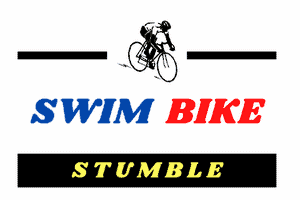So the off season, time to reflect on last season and think about next season. An opportunity to ask yourself: where am I going and how do I get there? Here’s another question while you’re at it: am I having fun? Below is my take on the relentless pursuit of progress. Remember it doesn’t have to be graceful. Occasional flailing is allowed and even encouraged.
1) Something has to change. Improvement – whether you define it as racing faster, going longer or tackling a new race or type of race – requires change. Not to get pedantic here but improvement is by it’s very nature change. You can change your training, learn new skills, invest in better equipment or alter your approach to the sport. Your call.
2) Most likely you have to change. Yeah I’m not too happy about this either. What can I say? Reality really isn’t into meeting you halfway. A wise man once taught me that realizing that you are the problem is actually a best case scenario. The easiest person for you to change is you. Ask yourself what is the one change that would make the biggest difference in my training/racing.
3) Get help. As one of my old college professors used to say: utilize all of your assets. Make an appointment with your coach, the bike shop, a swim instructor or a personal trainer. Get a bike fit. Have someone take a look at your swim. Ask your coach to video your run. Seek out someone who can help you with diet and nutrition.
4) It takes a village. Don’t forget about your friends, training partners and your local endurance sports/triathlon guru. Ask your friends what they’ve done in recent years that sharpened their game or improved their appreciation of the sport. The guru’s job is to teach you three things: you can learn the sport, grow as an athlete and are not the village idiot. Last off season I started barbell weight training based on Mark Rippetoe’s book, Starting Strength. Free weights aren’t for everyone but the training made a difference especially on my run.
5) Be open minded. Try something new. Let me rephrase that move out of the snack/chip/candy aisle and try something new. Also pretend you didn’t see me there. Try that yoga class. Go mountain biking. Maybe some kayaking. Look into that weird little race you’ve never done.
6) Don’t get too comfortable. As an endurance athlete you’ve definitely left your comfort zone behind more than once. Still it’s important to realize that it’s a process not a place. In the last year my fitness on the bike improved but I wasn’t really able to capitalize on it until the end of the season. I thought I was pushing on my training rides, and I was by my old standard. Finally I went all out on the bike in a race and found that I could go harder and still run well. I guess comfort or appropriate discomfort is a moving target.
7) Get mental. Sometimes it’s how you look at things. Stop, rethink, reframe. For a long time I’ve thought of the swim as my weakest sport. Currently I’m looking at the swim as my best opportunity to cut my times.
8) Laugh more. Especially if you can do it with your friends. But don’t be afraid to stop sometimes and laugh at yourself.
9) Rethink your motivation. What motivates you? What are you going to do when you don’t want to do a workout? When a workout in progress sucks? When your favorite race t-shirt is too tight? Will you visualize yourself finishing your toughest race to date? Pretend you are riding with your friend who is wicked fast? Give yourself a verbal cue like push hard or stay on pace? Open up your motivation toolbox and see what’s in there.
10) Reshape or resize your goals. I’m planning a post on goals so I’ll be brief here. Make a list of goals and ask yourself a few quick questions. Are they precise? Too low? Too high? Realistic? What are the obstacles I have to overcome? Do I like these goals? Seriously do you?
11) Embrace the madness. Let’s face facts, you entered a sport that has three sports inside it: swimming, biking and running. And a fourth sport: transition. And a fourth sport: nutrition. And a fourth sport: strength training. This proves two things. 1) You were a bit disturbed to start with. 2) I am really bad at counting.
It is my sincere hope that while you are out there training you experience those same intense, insane, instants that I do. Moments in the open water when I realize I’ve mostly overcome my dread, or on the bike with the wind in my scalp or running trails navigating roots in real time. Frozen seconds where the enthusiasm eclipses everything. I smile my deranged smile. And I know the fierce joy of being in motion. Stumble onward.








These are all great ways to improve one’s triathlon performance, no matter where one’s physical abilities lie. Since these events test athletes in different ways, a flexible form of working out is essential.